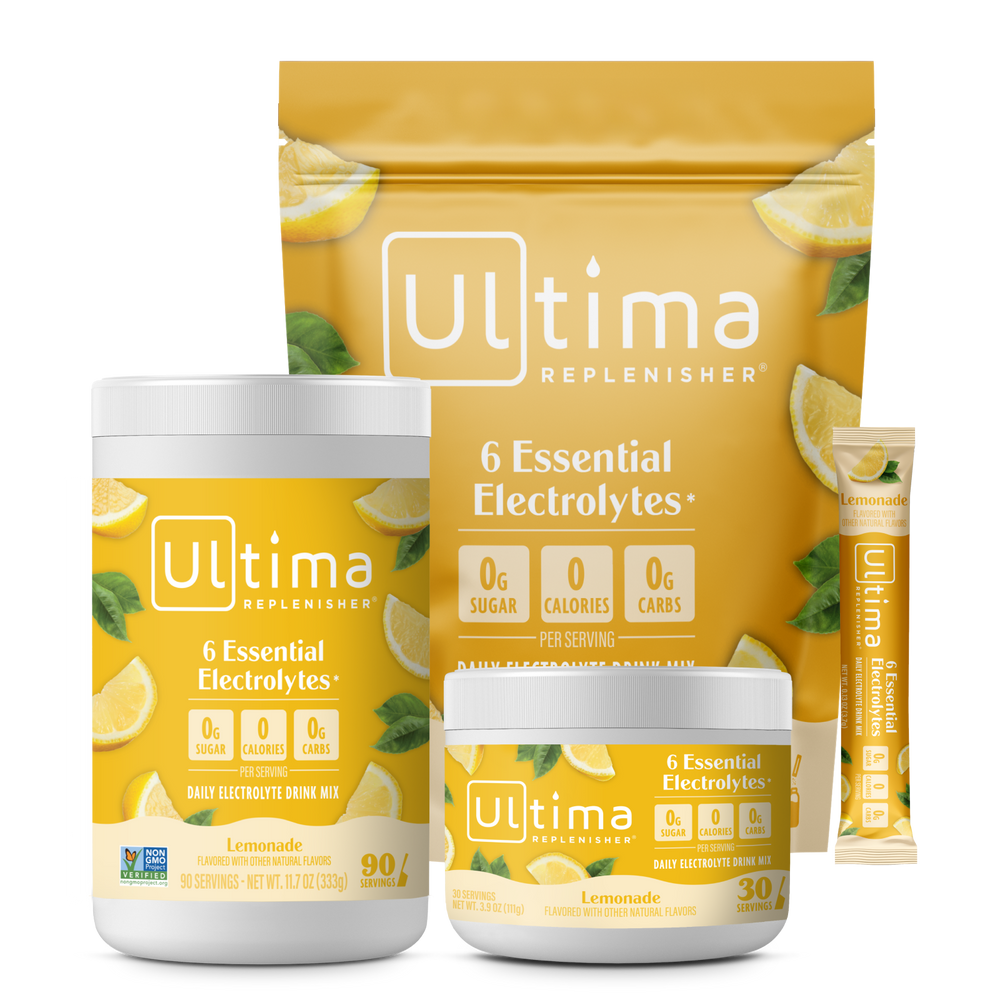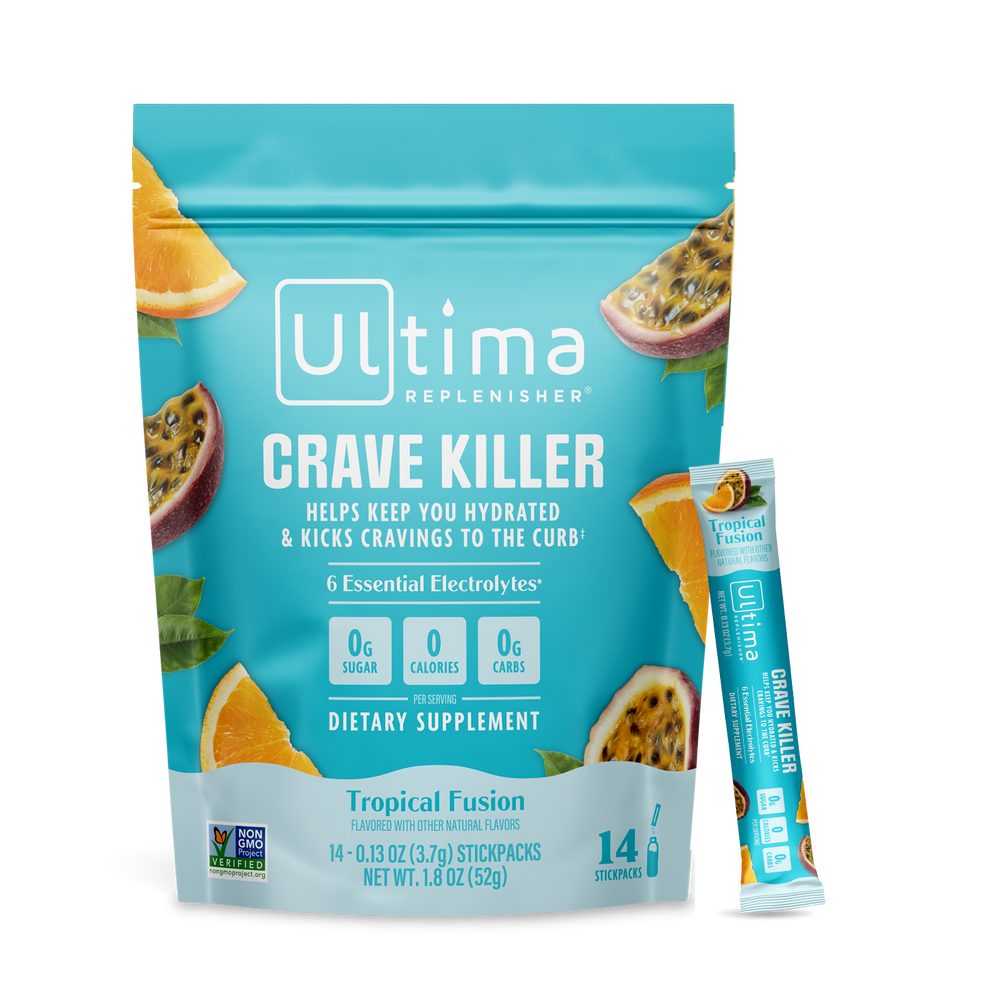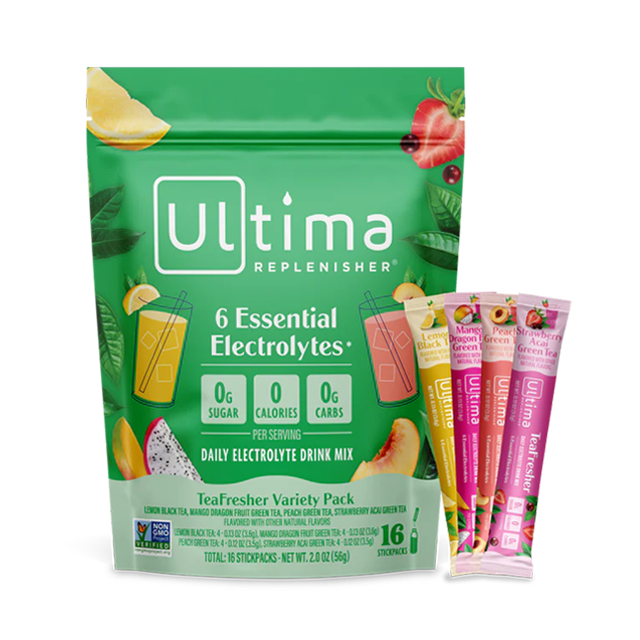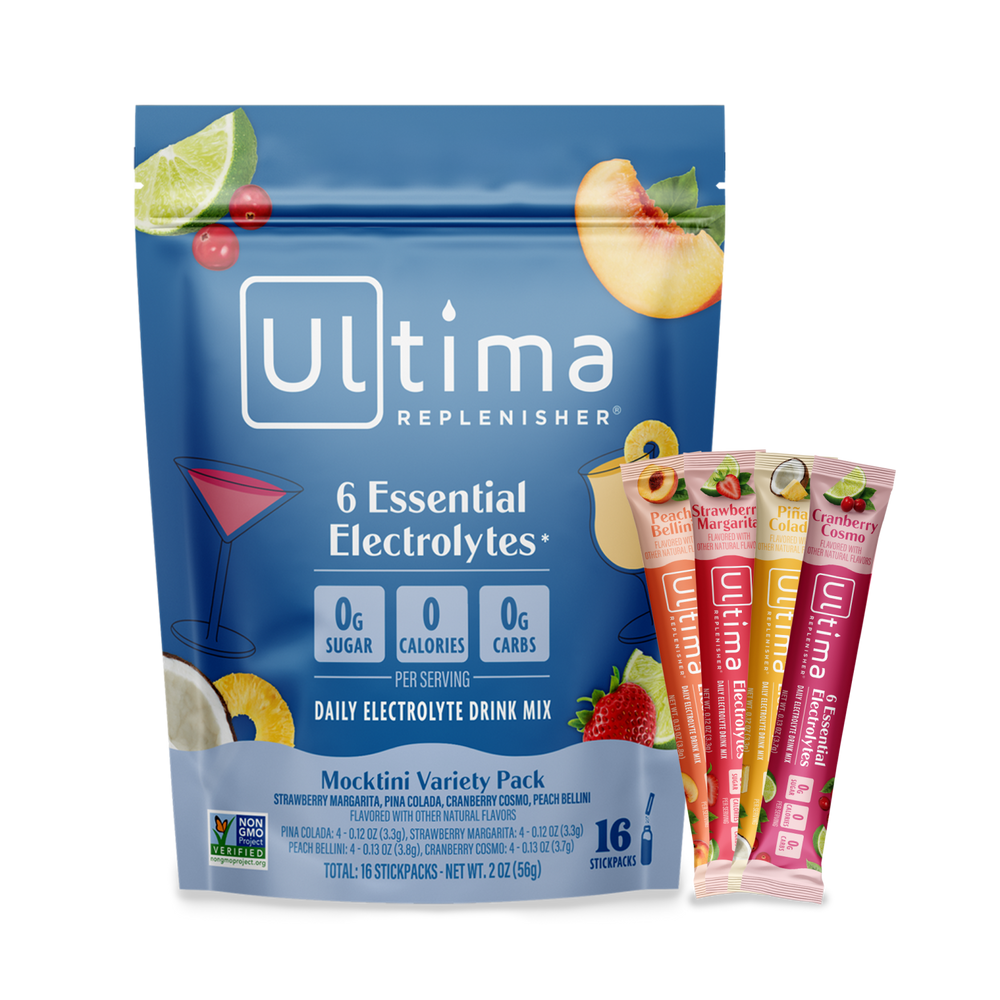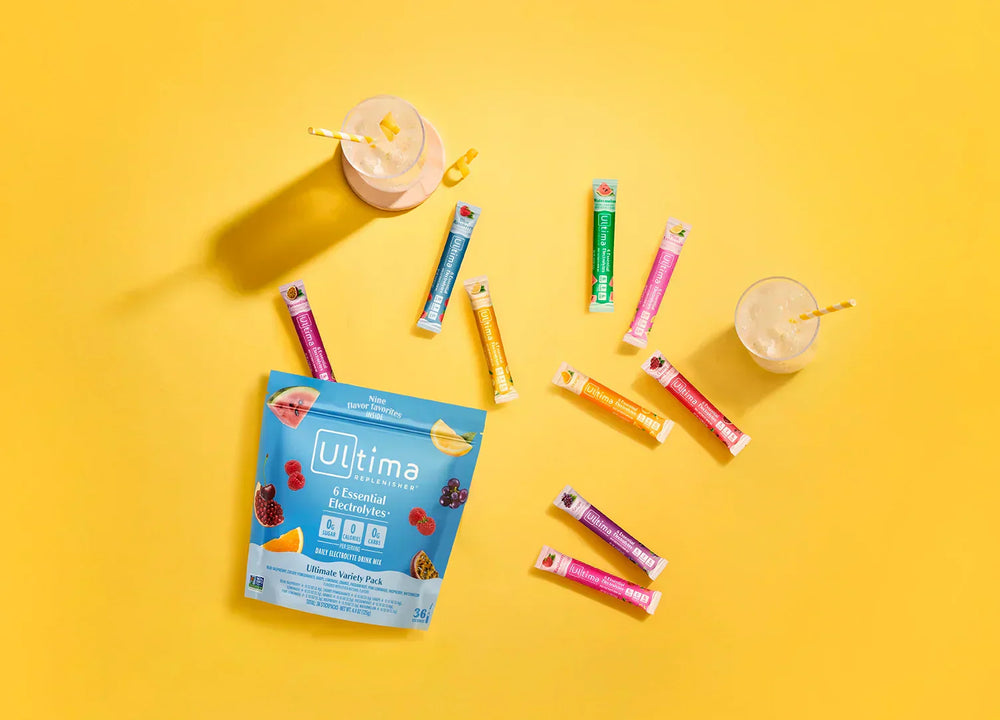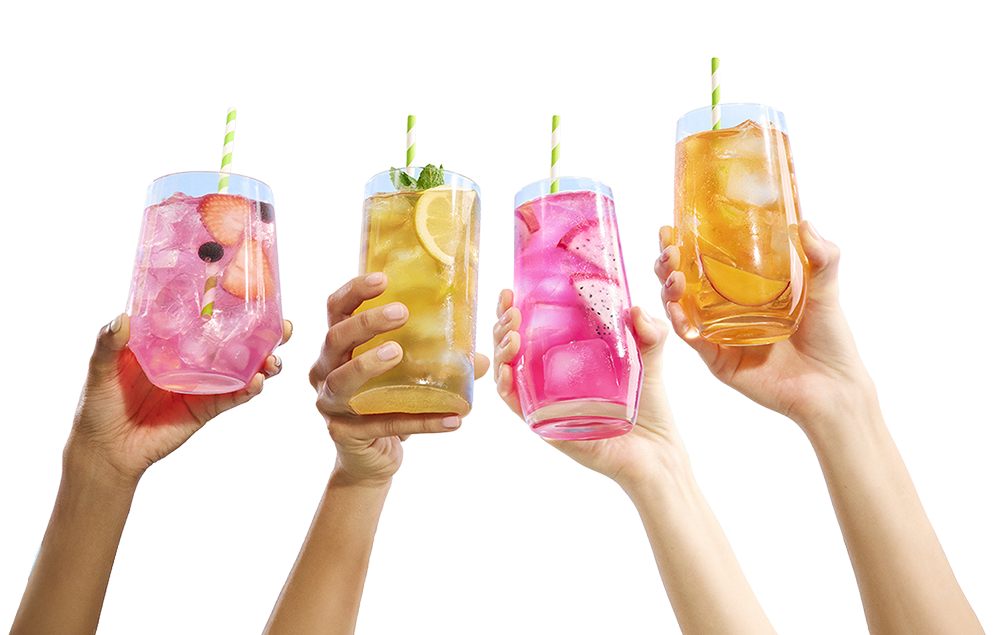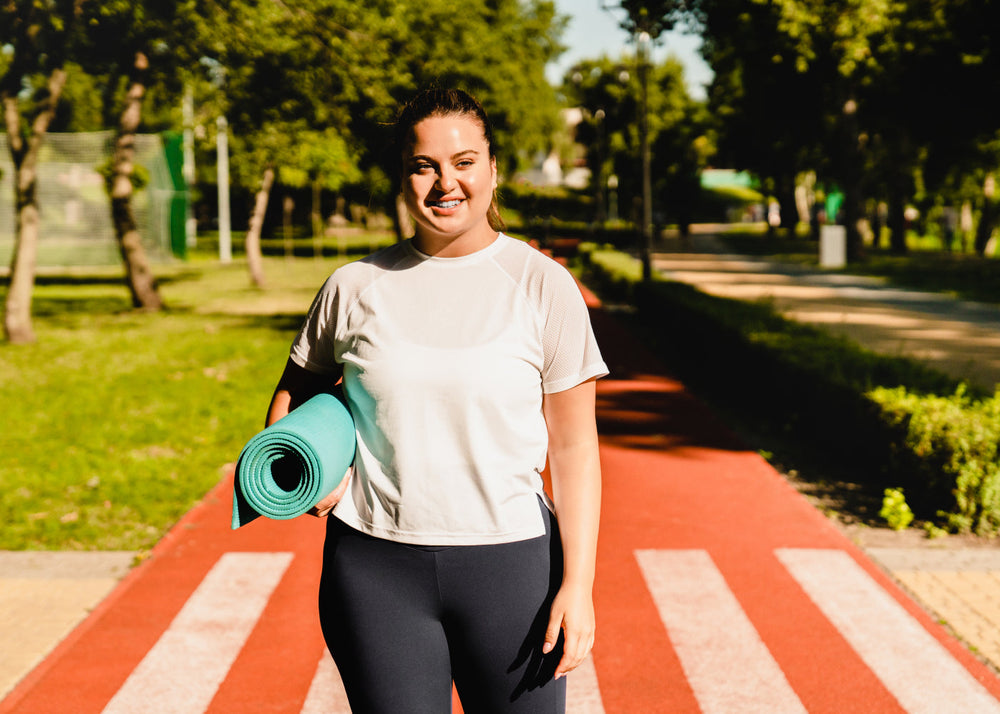
Do Electrolytes Raise Blood Sugar? Myths vs. Facts
If you have diabetes, you understand how much your diet influences how you feel. You’ve likely learned more about how carbs, sugars, proteins, and fats impact your blood sugar than you ever expected. However, did you know that hydration is also essential, not just in what you consume, but also in how much you drink each day?
You may have heard that electrolytes can increase blood sugar levels, but is that really true? In this article, we debunk myths and answer your question: do electrolytes raise blood sugar? We want you to be able to hydrate with confidence while maintaining your health goals.
Understanding electrolytes and blood sugar
What are electrolytes and their functions
Electrolytes are tiny but mighty minerals—like sodium, potassium, and magnesium—that help your body run smoothly. They keep you hydrated, your muscles moving, your nerves firing, and your heart beating just right. Think of them as your body’s personal hydration squad, making sure everything stays balanced so you can feel your best, especially on keto or low-carb days.
See more: What Are Electrolytes Good For? 5 Things You Should Know.
Overview of blood sugar regulation
Blood sugar regulation helps maintain steady glucose levels, ensuring your body has sufficient energy without fluctuating too high or too low. When you eat, insulin helps move glucose from your blood into your cells for fuel, while your liver releases stored glucose between meals to maintain balance.
Why people worry about electrolytes and blood sugar
Some people worry about electrolytes and blood sugar levels because many sports drinks and electrolyte products contain hidden sugars, which can cause glucose spikes. This is especially critical for diabetics or keto followers. Staying hydrated and maintaining electrolyte balance is key, but avoid added sugars that disrupt blood sugar stability.
Do electrolytes raise blood sugar?
Natural electrolytes vs. sweetened electrolyte drinks
Natural electrolytes can be found in whole foods like avocados, greens, and bone broth, providing minerals without added sugar. Many sweetened drinks are high in sugar and artificial ingredients that can cause a spike in blood sugar. For a balanced choice, opt for sugar-free options like Ultima Refresher to stay hydrated without a sugar crash.
Impact of electrolytes on glucose metabolism
Electrolytes support glucose metabolism; magnesium aids insulin, and potassium helps move glucose into cells. Low levels hinder blood sugar management, so maintaining balance benefits glucose control, especially when following a keto diet or managing diabetes.
And if you need an easy, sugar-free way to get them in, Ultima Refresher has your back. Made with 6 key electrolytes, 0 sugar, carbs and calories, it's clean, delicious hydration anytime you need it.
The role of added sugars and fillers
Added sugars and fillers in many electrolyte drinks can work against your hydration goals, especially if you’re managing blood sugar. Sugary drinks can cause glucose spikes and disrupt hydration balance, while fillers offer no real nutritional benefit.
It’s essential to replenish your electrolytes through a balanced diet and regular hydration daily. Electrolytes help maintain the balance of fluids within your cells, which is crucial for proper hydration, regulating healthy blood pressure, and supporting nerve and muscle function.
These vital minerals help your kidneys and other organs perform at their best. If you haven’t discussed a diet and hydration plan with your doctor yet, consider scheduling a visit specifically to create a strategy for your daily meals, hydration, and other habits to support you as you manage your diabetes.
Safe electrolyte use for blood sugar management
Timing electrolyte intake with meals or fasting
Taking electrolytes with meals can support digestion and steady absorption, while during fasting, they help prevent dehydration and cramps. Either way, timing your intake helps you feel your best, especially on keto.
Electrolytes for diabetics and keto dieters
Proper hydration is crucial for nutrient transport, brain function, and maintaining body temperature. When you are dehydrated, your body has less fluid, which makes glucose in your blood more concentrated. This can lead to higher blood sugar readings without an increase in sugar, a phenomenon often called "diabetes thirst.” Dehydration can also raise blood pressure, stress the kidneys, and increase urination, which washes out vital electrolytes.
For people with diabetes, it is generally advised to drink 1.6–2 litres of fluids daily, although needs vary based on age, weight, and health conditions. Staying properly hydrated can help control blood sugar and support your kidneys in eliminating excess glucose.
To avoid even minor dehydration, choose electrolyte-rich drinks to help maintain hydration. Coconut water is a natural choice with less sugar than fruit juices, and it contains protein and fibre to slow sugar spikes, along with sodium, potassium, calcium, and magnesium.
If you prefer a purer, Keto friendly alternative, Ultima Replenisher provides six essential electrolytes—calcium, magnesium, potassium, sodium, phosphorus, and chloride—plus vitamin C and zinc, all without sugar, carbs, or artificial additives. Sweetened with organic stevia (Rebaudioside A), which has a low glycemic index, Ultima hydrates you without causing blood sugar spikes or drops, while adding a naturally sweet, fruity flavor to your day.
Read more: How to Hydrate Fast - 5 Simple Ways for Rehydration
When electrolytes might affect blood sugar
Situations where blood sugar may fluctuate
Blood sugar can fluctuate during illness, stress, exercise, dehydration, or after eating certain foods. Medications, skipped meals, and hormonal changes can also impact your levels, causing them to rise or drop unexpectedly.
Electrolyte imbalance and stress hormones
Electrolyte imbalances can trigger stress hormones like cortisol and adrenaline, which may raise blood sugar levels. This is because your body sees low electrolytes as a stress signal and responds to keep you functioning.
Individual variability and underlying health conditions
Individual differences and underlying health conditions affect how your body handles electrolytes and blood sugar. Factors like diabetes, kidney health, and hormone levels can change your needs and how your body responds.
Science-backed ingredients that support balanced energy
Science-backed ingredients like electrolytes, magnesium, and potassium support balanced energy by aiding hydration and muscle function, while also preventing fatigue. They help your body produce energy efficiently without sugar spikes or crashes.
Hydrate smart with Ultima
Do electrolytes raise blood sugar? The short answer: not when you choose the right ones. Hydration with the proper electrolytes is essential for maintaining balanced energy, stabilizing blood sugar levels, and promoting overall health, especially when following a keto diet or managing diabetes. Ultima Replenisher makes it easy, providing six key electrolytes—calcium, magnesium, potassium, sodium, phosphorus, and chloride—without sugar or artificial ingredients. It’s a clean, delicious way to support your hydration and wellness goals every day.
